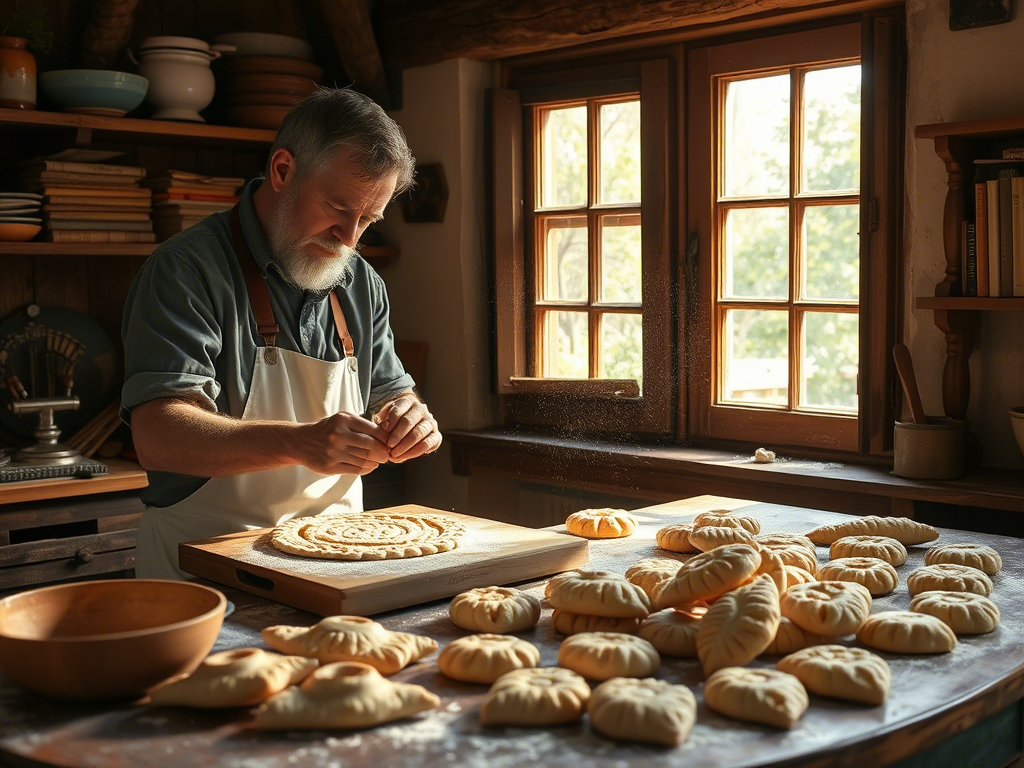Have you ever stopped to think about how something as simple as biscuits has shaped cultures across centuries? From ancient Roman hardtack to modern-day holiday cookies, biscuit crafting tells a story of innovation, tradition, and human connection.
This humble baked good has traveled through time, adapting to societal changes while maintaining its cultural significance. In this article, we will explore the fascinating history of biscuit making, from its origins in survival-based recipes to its role in today’s culinary arts.
We’ll also delve into why understanding the evolution of biscuit crafting matters—not just for food enthusiasts but for anyone interested in the interplay between culture, technology, and creativity. By the end of this journey, you’ll see biscuits not merely as snacks but as symbols of shared heritage and evolving traditions.
The Rise of Personalized Learning
Much like personalized education tailors lessons to individual needs, biscuit crafting has always been adaptable. Early civilizations created basic forms of biscuits using available ingredients—grains mixed with water or fat—to ensure long shelf lives during travel or famine.

Over time, advancements in agriculture and trade introduced new flavors and textures, allowing bakers to cater to regional preferences. Today, artisanal biscuit makers use data-driven insights to understand customer tastes better, creating products tailored to specific dietary requirements such as gluten-free or vegan options.
Tools like artificial intelligence (AI) help predict trends, while platforms like online recipe generators allow home bakers to experiment safely. Just as AI enhances learning experiences by analyzing student performance, it empowers bakers to innovate without losing sight of tradition.
Immersive Technologies Transforming Classrooms
Imagine stepping into an 18th-century bakery where apprentices learned their craft under master bakers. Now imagine doing so virtually. Immersive technologies like augmented reality (AR) and virtual reality (VR) are revolutionizing how people learn skills, including baking.
For instance, aspiring chefs can don VR headsets to practice kneading dough or decorating cakes in simulated environments. These tools provide hands-on experience without wasting resources, making them ideal for both beginners and professionals.
Similarly, AR apps overlay instructions directly onto real-world surfaces, guiding users step-by-step. Such innovations make learning more engaging and effective, bridging gaps between theory and practice. As classrooms evolve globally, these same principles apply to biscuit crafting, enabling enthusiasts worldwide to access expert knowledge at their fingertips.
Focus on Lifelong Learning and Skill Development
In today’s fast-paced world, lifelong learning isn’t optional—it’s essential. Whether it’s acquiring new software skills or mastering pastry techniques, continuous growth ensures relevance in any field.
Platforms like Coursera, Udemy, and even YouTube offer courses ranging from beginner-level tutorials to advanced methods for professional bakers. Micro-certifications further validate acquired competencies, empowering individuals to showcase their expertise.
In biscuit crafting, this shift means amateurs can now achieve near-professional results with guidance from top instructors.
Moreover, the emphasis on transferable skills—creativity, problem-solving, adaptability—prepares learners for diverse career paths beyond traditional roles. As industries transform, embracing lifelong learning becomes key to staying competitive.
Globalization and Access to Education
Globalization has broken down barriers in countless ways, including education. Massive Open Online Courses (MOOCs) democratize access to premium content, allowing anyone with internet access to study subjects previously reserved for elite institutions.
Applied to biscuit crafting, initiatives like free webinars or global bake-offs bring together communities separated by geography. Rural areas benefit immensely from remote learning opportunities, equipping residents with marketable skills they might otherwise lack.
However, challenges remain: reliable connectivity issues persist in some regions, and language barriers occasionally hinder comprehension.
Solutions include offline downloads and multilingual subtitles, ensuring inclusivity remains central to educational efforts. Ultimately, globalization fosters collaboration, inspiring cross-cultural exchanges that enrich everyone involved.
Education for Sustainability and Social Responsibility
As awareness grows around environmental concerns, sustainability takes center stage in all fields, including biscuit crafting. Schools worldwide integrate eco-friendly practices into curricula, teaching students about reducing waste, sourcing ethical ingredients, and minimizing carbon footprints.
Some programs go further by incorporating social responsibility themes, encouraging students to contribute positively to society. For example, one initiative involves baking workshops for underserved communities, promoting entrepreneurship among participants.
Another focuses on upcycling leftover ingredients into delicious treats, demonstrating resourcefulness and ingenuity. These efforts resonate deeply with younger generations prioritizing values over profits, shaping future leaders committed to positive change.
Conclusion
From ancient times to modern kitchens, biscuit crafting reflects humanity’s ability to adapt and thrive. Through technological advancements, immersive experiences, and sustainable practices, this art continues to evolve, offering endless possibilities for innovation.
Each trend discussed—from personalized learning to global accessibility—highlights the importance of staying informed and engaged in our rapidly changing world. As individuals, we must embrace these shifts not only to enhance our own capabilities but also to inspire others along the way.
So, whether you’re perfecting your favorite cookie recipe or exploring new frontiers in digital education, remember that every small action contributes to a larger movement toward progress. Share your thoughts below: How do you envision biscuit crafting influencing future generations? Together, let’s celebrate the power of learning and creation!

Marcela Fontes is a creative entrepreneur and content creator known for founding Portal de Ideias Virtual, an online platform dedicated to inspiring and empowering people through innovative ideas and practical solutions. With a background in design and digital media, Marcela has built a reputation for her ability to connect with audiences by sharing valuable insights on topics ranging from home decor and lifestyle to personal development and business strategies. Her passion for creativity and entrepreneurship shines through her engaging content, which aims to spark imagination and foster innovation among her followers. Through Portal de Ideias Virtual, Marcela continues to inspire a global community, encouraging individuals to turn their ideas into reality while embracing their unique potential.


